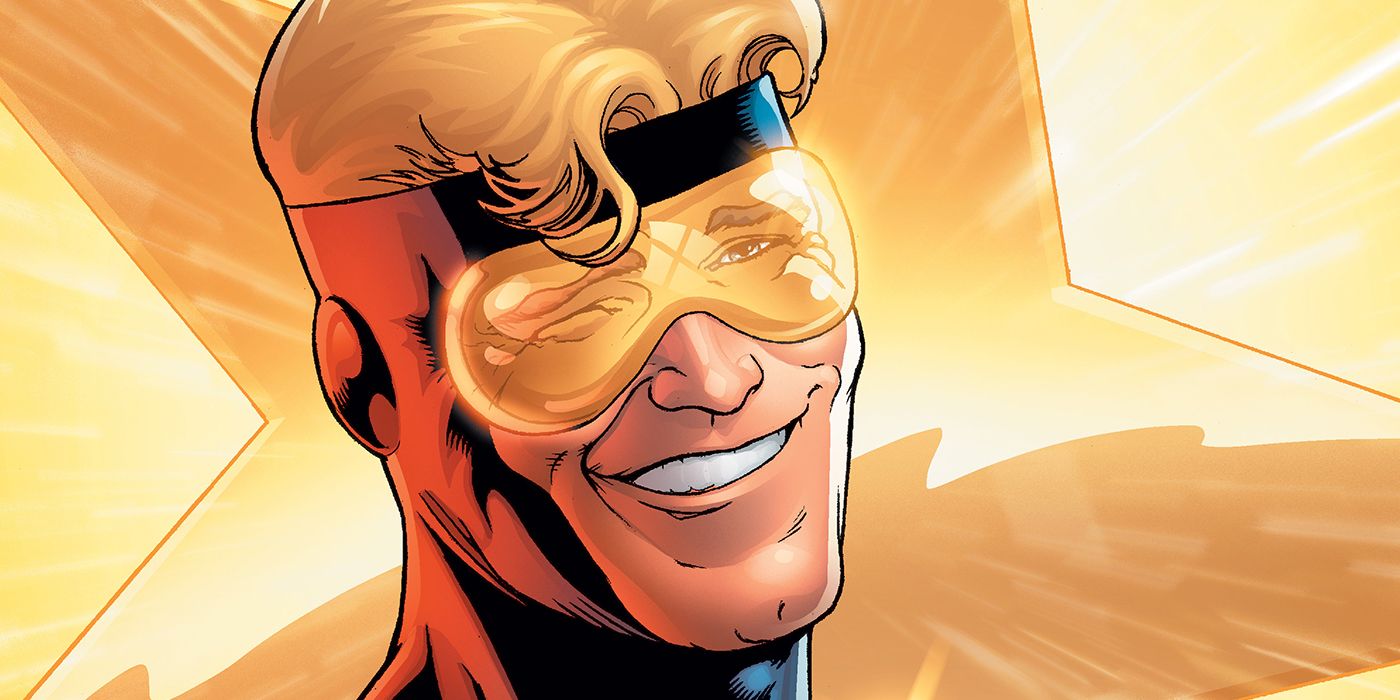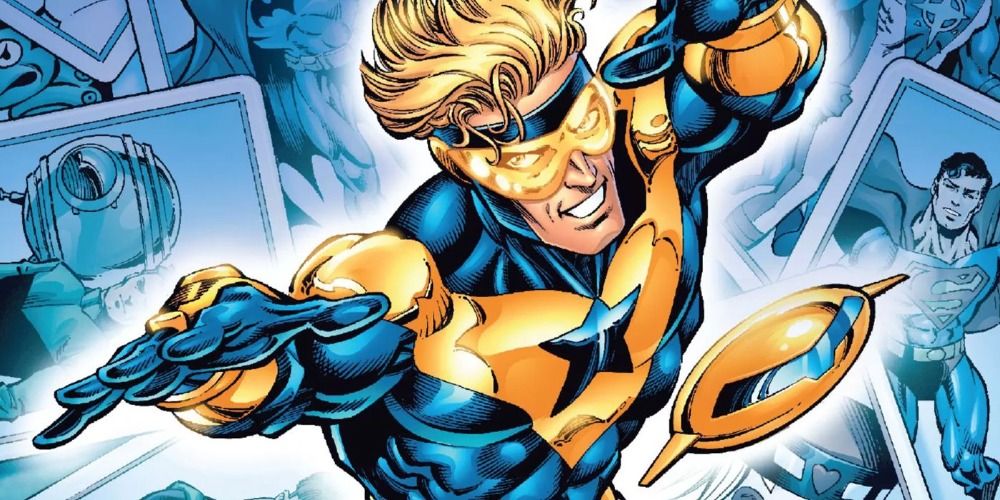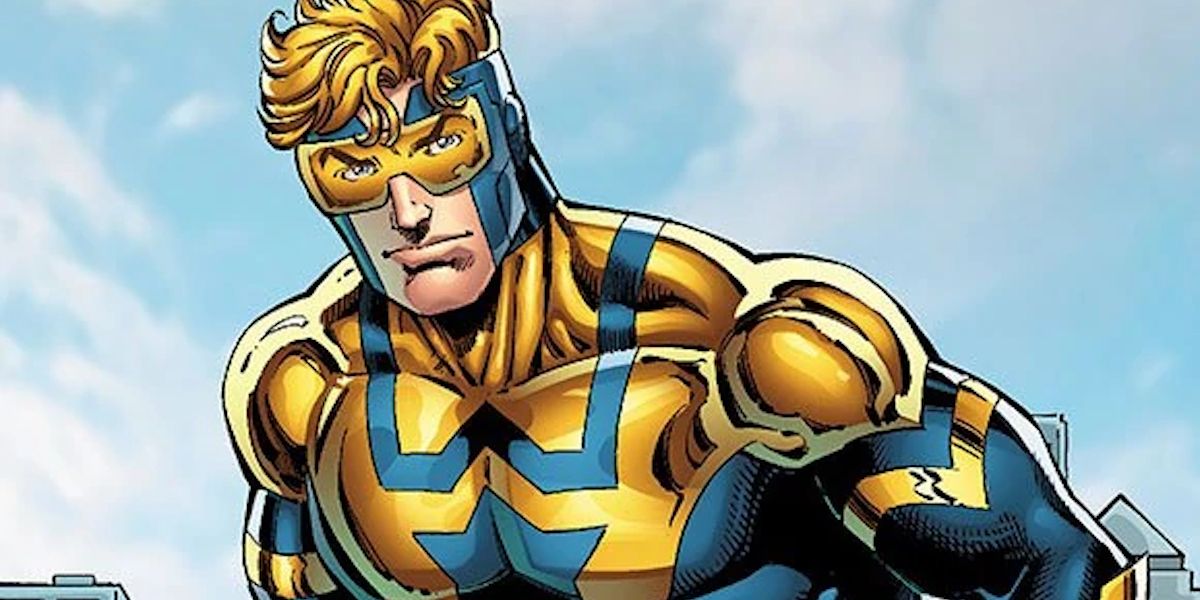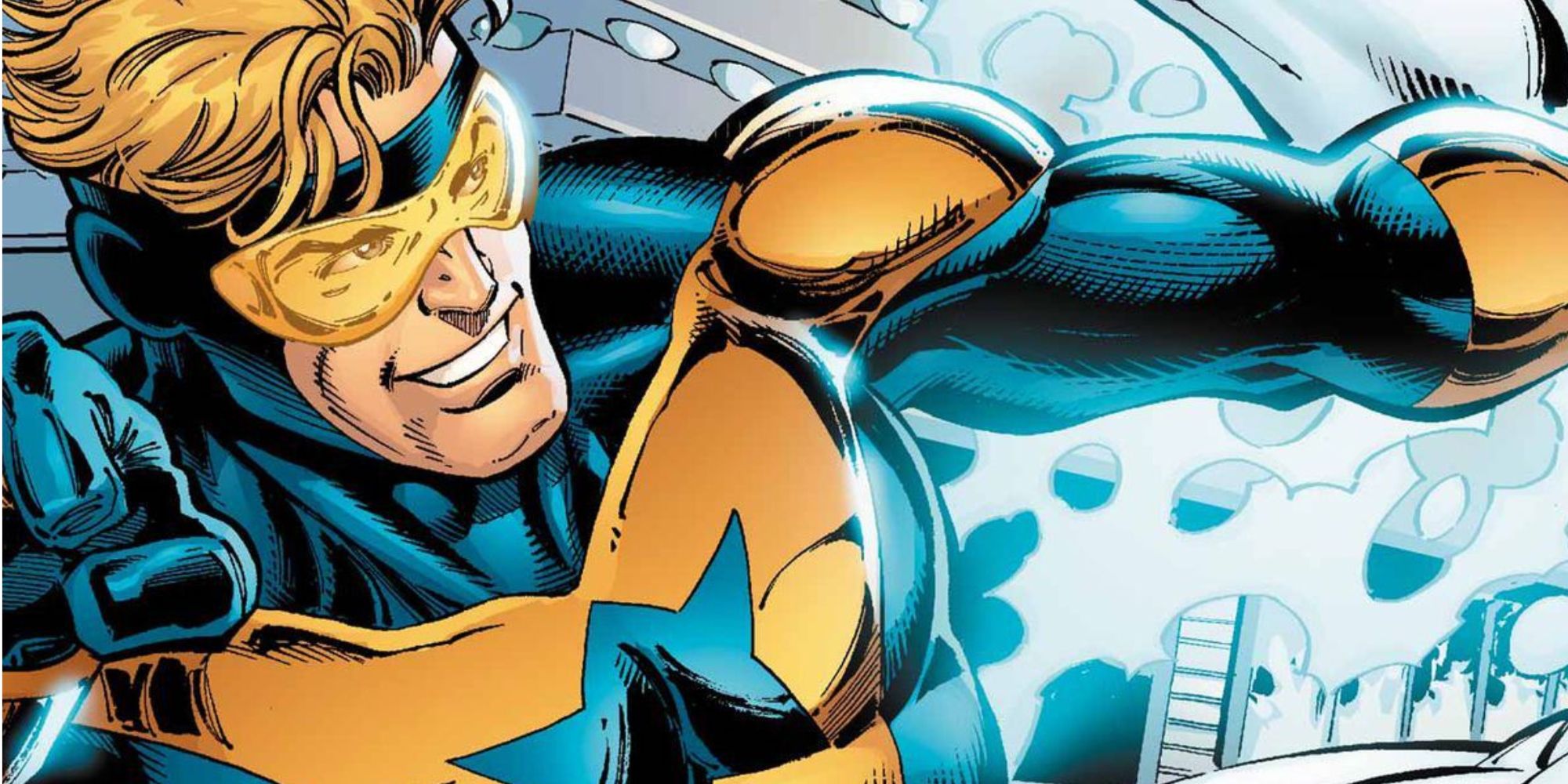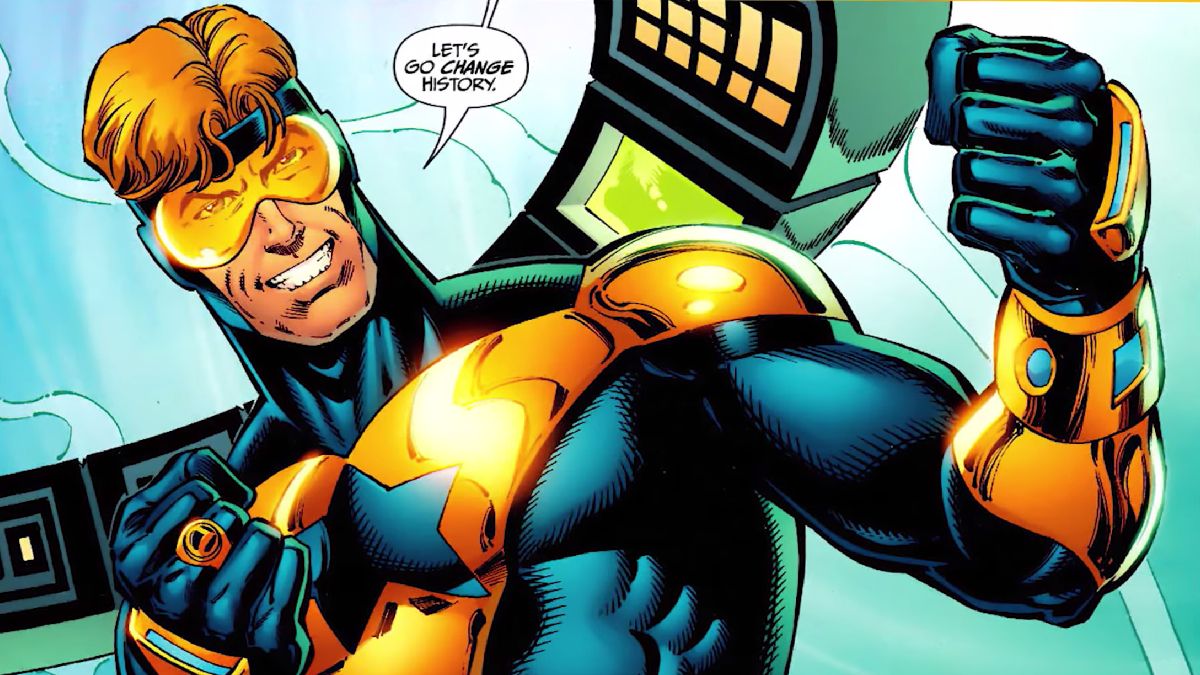Among the many announcements from James Gunn and Peter Safran on their plans for the DCU is confirmation of an HBO Max series featuring fan-favorite hero Booster Gold. It's been a long-time coming for the hero, who looked to be lined up for a film in 2016 that never materialized, and a role in DC's Legends of Tomorrow that didn't extend past the Season 7 finale due to the cancelation of the series. Outside of DC fandom, however, Booster Gold is virtually unknown. His history doesn't go back as far as the classic DC characters who've long been in the public consciousness. His history doesn't even kick off in the conventional comic-book way, more "with great power comes great wealth and stature" than "great responsibility". But sometimes a narcissistic, charming, and not entirely truthful hero wannabe becomes something more.
When Was Booster Gold Introduced?
After the iconic Crisis on Infinite Earths miniseries that changed the entire landscape of DC Comics, one of the first new characters (and one of the few that caught on with comic-book fans) introduced was Michael Jon Carter, aka Booster Gold, in the pages of 1986's Booster Gold #1. Carter had a gift for football, a talent that made him a standout on the high school football team and earned him a scholarship to attend Gotham University. Not too bad for a 25th-century man born into a poor family with a father that abandoned them when he was only 4.
The star quarterback, nicknamed "Booster", could seemingly do no wrong, until his father came back into his life. His dad convinced Carter that they could make a fortune on gambling... if he started purposely losing games. Carter begrudgingly agreed, but instead of raking in cash, he was caught, expelled, and disgraced publicly. Lost and shunned, Carter took a job as a security officer at the Metropolitan Space Museum to make ends meet. He grew captivated by the exhibits of superheroes from the past and began stealing pieces of the costumes on display to make his own superhero costume. This included Rip Hunter's Time Sphere, a Legion of Super-Heroes Flight Ring, Brainiac 5's Force Field Belt, and a Power Suit.
All That Glitters is Not Booster Gold
Now, with a new costume, 25th-century technology, and an in-depth knowledge of what had happened in the past (aided by a former BX9 security robot named Skeets), Carter traveled back in time and prevented crimes that were about to happen (see, kids - history class can be useful). Repeatedly doing so elevated him to receiving the plaudits and love that came with being a world-famous hero. Adopting the moniker Goldstar, Carter saved the President one day, but in the press conference, he mistakenly combined his old football nickname with his new hero name, resulting in the name Booster Gold.
With the public exposure from his heroics, Booster, reveling in the fame that was taken from him in the future, signs a number of commercial and movie deals, growing increasingly wealthy as a result. He creates a holding company called Goldstar, Inc. (aka Booster Gold International), hiring Dirk Davis as his agent. Booster, unfortunately, would become bankrupt during the events of the 1988 miniseries Millennium.
Booster Gold (Sometimes) Plays Well With Others
Shortly after, Booster Gold joined Maxwell Lord's Justice League International. It's here where Booster meets his BFF for the first time, the Blue Beetle, aka Ted Kord. The two grew close, but did cause trouble for the League, where their mischief would often draw the team in to some comical adventures. Not feeling respected by his teammates, Booster quit the League and formed The Conglomerate, a corporate-sponsored superhero team in competition with the JLI. He wasn't gone long before returning to the League once again, just in time to face the monster Booster himself named "Doomsday" (yes, the Superman-slayer Doomsday).
In the battle, Booster's suit was destroyed, and with it his ability to be a superhero. Kord came to his rescue and built a new suit for him - bulkier, prone to malfunctions, but a new suit nevertheless. A battle with the Overmaster ended up with Booster becoming mortally wounded, his suit destroyed, and the loss of his right arm. Kord would come to the rescue once again with a suit that was a life-support system and had a cybernetic arm. During his time with Captain Atom's Extreme Justice group (a JL group composed of members more proactive in the pursuit of justice), Booster made a deal with Monarch, who restored his arm and his health. Yet another new costume came about, this one with parts from his robot partner Skeets, that brought Booster back to his good old self.
Booster Gold: Real Hero
After disappearing for a time, the DC Universe-altering 52 event brought Booster Gold back, anxious to fill the void left in Metropolis after Superman lost his powers. He signed multiple sponsorship contracts, and as he had before he used his knowledge of the future to perform heroic deeds. His credibility would take a devastating hit when a supervillain he defeated ended up being an actor that Booster hired. Redemption came when a large sea monster brought a nuclear submarine into the middle of Metropolis. With the submarine damaged and on the verge of setting off a nuclear explosion, Booster lifted the sub in his force field, flying it out of the way but - seemingly - at the loss of his own life. "Seemingly" meant that the death was a ruse, a ploy by Booster with the help of Rip Hunter to figure out why his robot ally Skeets had turned into a traitor. He took on the guise of Supernova, using the anonymity of this "new" hero to perform good deeds for the sake of doing good deeds; not for the money, not for the glory. He returns to his Booster Gold identity before joining with Rip Hunter to help repair the time stream.
The truth is that Booster Gold works because there is a little egotistic, self-promoting but good-hearted man behind the golden shades. In a world where social media is king, a hero that uses it well is one that can be a hero for our time.

